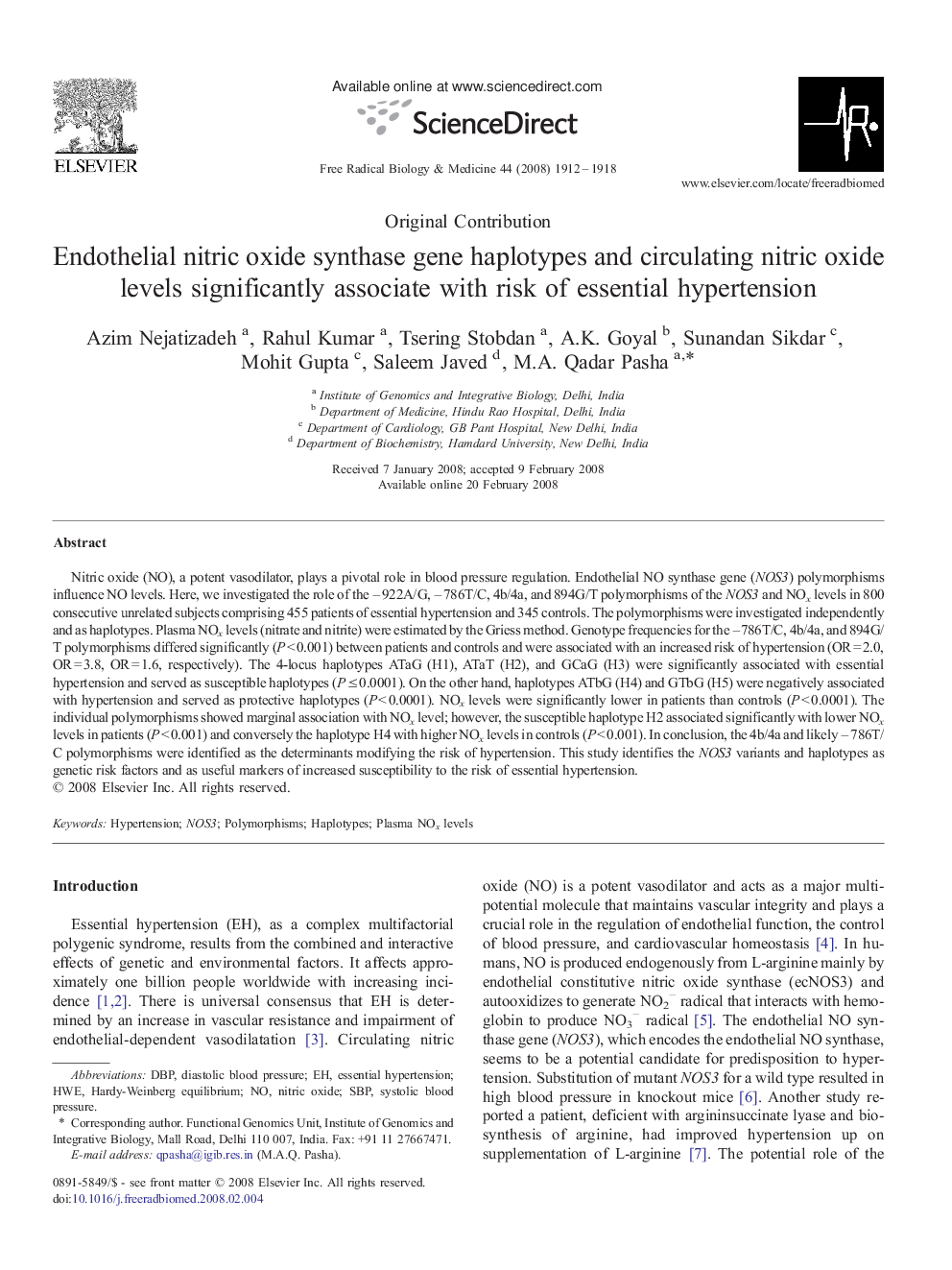| Article ID | Journal | Published Year | Pages | File Type |
|---|---|---|---|---|
| 1910725 | Free Radical Biology and Medicine | 2008 | 7 Pages |
Nitric oxide (NO), a potent vasodilator, plays a pivotal role in blood pressure regulation. Endothelial NO synthase gene (NOS3) polymorphisms influence NO levels. Here, we investigated the role of the – 922A/G, – 786T/C, 4b/4a, and 894G/T polymorphisms of the NOS3 and NOx levels in 800 consecutive unrelated subjects comprising 455 patients of essential hypertension and 345 controls. The polymorphisms were investigated independently and as haplotypes. Plasma NOx levels (nitrate and nitrite) were estimated by the Griess method. Genotype frequencies for the –786T/C, 4b/4a, and 894G/T polymorphisms differed significantly (P < 0.001) between patients and controls and were associated with an increased risk of hypertension (OR = 2.0, OR = 3.8, OR = 1.6, respectively). The 4-locus haplotypes ATaG (H1), ATaT (H2), and GCaG (H3) were significantly associated with essential hypertension and served as susceptible haplotypes (P ≤ 0.0001). On the other hand, haplotypes ATbG (H4) and GTbG (H5) were negatively associated with hypertension and served as protective haplotypes (P < 0.0001). NOx levels were significantly lower in patients than controls (P < 0.0001). The individual polymorphisms showed marginal association with NOx level; however, the susceptible haplotype H2 associated significantly with lower NOx levels in patients (P < 0.001) and conversely the haplotype H4 with higher NOx levels in controls (P < 0.001). In conclusion, the 4b/4a and likely – 786T/C polymorphisms were identified as the determinants modifying the risk of hypertension. This study identifies the NOS3 variants and haplotypes as genetic risk factors and as useful markers of increased susceptibility to the risk of essential hypertension.
